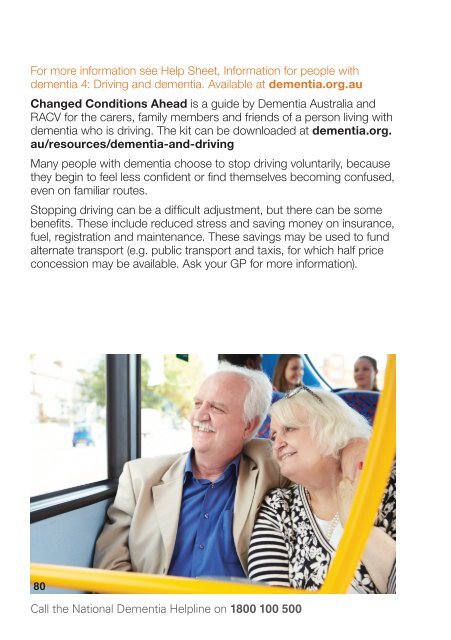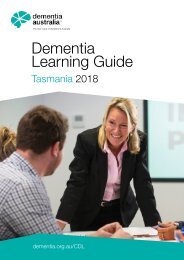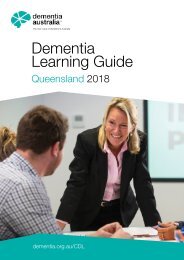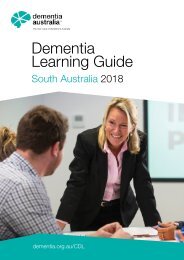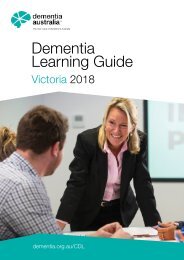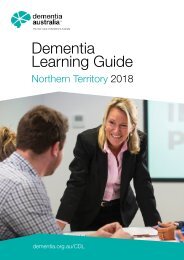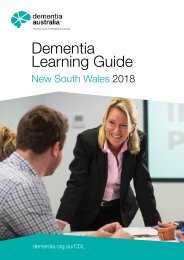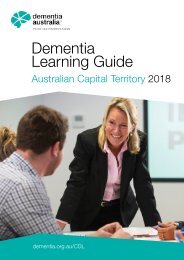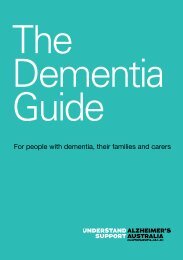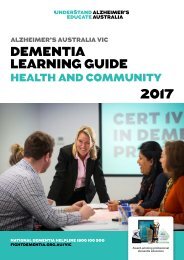Dementia Australia | The Dementia Guide
The Guide will also be used by the family and friends of someone with dementia, as it will contain information for anyone taking on a caring role. It will help people to understand more about dementia and the emotional impact of a diagnosis, the available drug treatments, and support and services that are available. It will include information about living well with dementia and about making plans for the future.
The Guide will also be used by the family and friends of someone with dementia, as it will contain information for anyone taking on a caring role. It will help people to understand more about dementia and the emotional impact of a diagnosis, the available drug treatments, and support and services that are available. It will include information about living well with dementia and about making plans for the future.
Create successful ePaper yourself
Turn your PDF publications into a flip-book with our unique Google optimized e-Paper software.
For more information see Help Sheet, Information for people with<br />
dementia 4: Driving and dementia. Available at dementia.org.au<br />
Changed Conditions Ahead is a guide by <strong>Dementia</strong> <strong>Australia</strong> and<br />
RACV for the carers, family members and friends of a person living with<br />
dementia who is driving. <strong>The</strong> kit can be downloaded at dementia.org.<br />
au/resources/dementia-and-driving<br />
Many people with dementia choose to stop driving voluntarily, because<br />
they begin to feel less confident or find themselves becoming confused,<br />
even on familiar routes.<br />
Stopping driving can be a difficult adjustment, but there can be some<br />
benefits. <strong>The</strong>se include reduced stress and saving money on insurance,<br />
fuel, registration and maintenance. <strong>The</strong>se savings may be used to fund<br />
alternate transport (e.g. public transport and taxis, for which half price<br />
concession may be available. Ask your GP for more information).<br />
80<br />
Call the National <strong>Dementia</strong> Helpline on 1800 100 500


